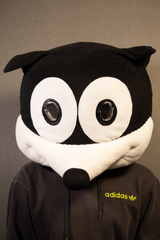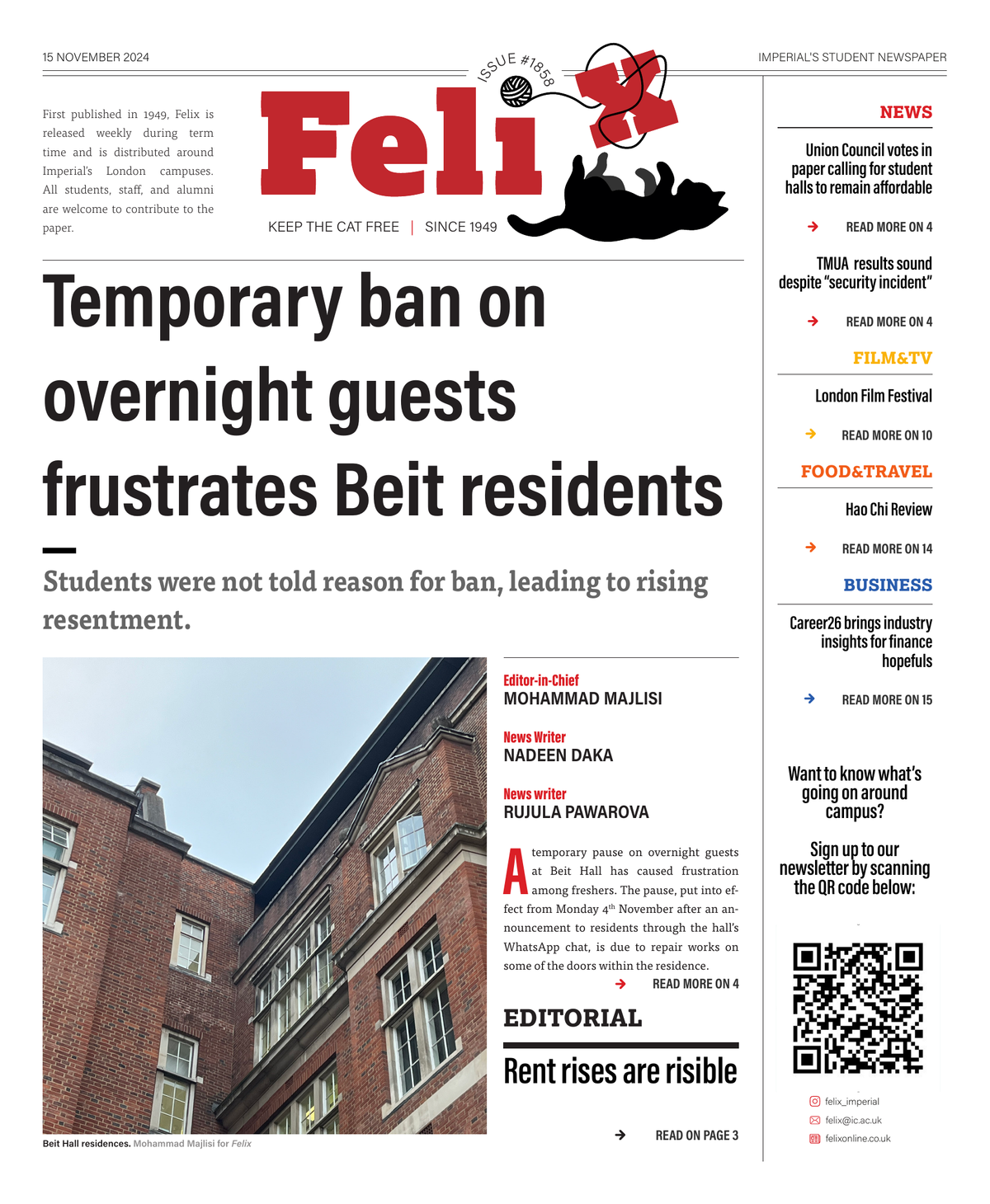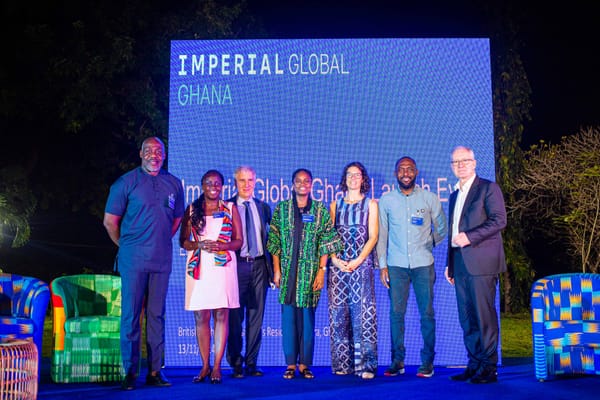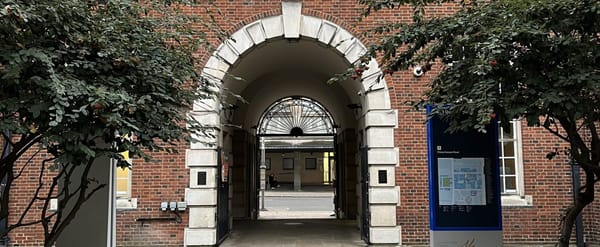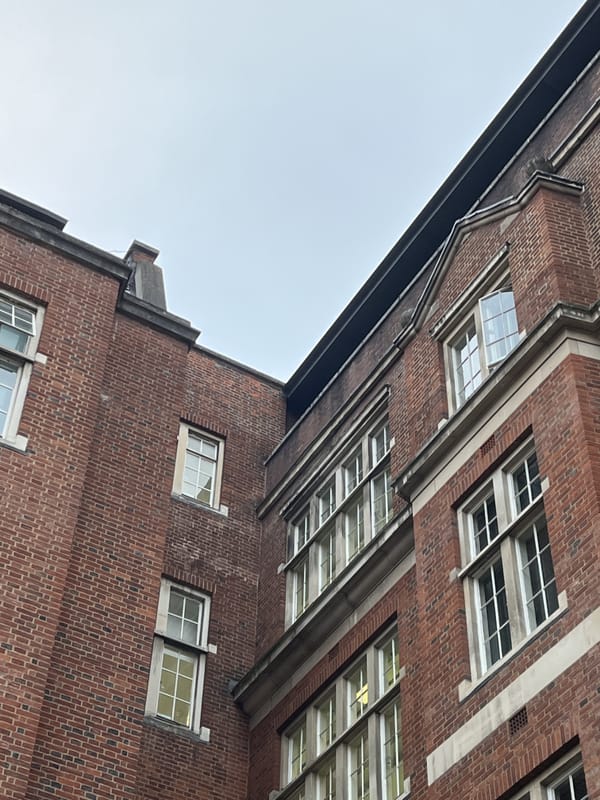OT Interviews: Nico Henry, Deputy President (Welfare)
Felix interviews Nico about his ambitious year full of promises and what it’s like to work as an Officer Trustee as someone who hasn’t historically engaged with IC Union
Nico Henry was never someone who was engaged with the Union during his time as an undergrad. He “didn’t have any roles” on a Club or Society Committee, and he “wasn’t involved in any societies”. But during third year, as he wrote his dissertation, Nico decided to run for Deputy President (Welfare). “I realized I chose physics because I wanted to kind of create an impact with the work I do,” he says on our call. “But then I realized I was doing my dissertation on calibrating neutrino detectors, and by the end of it by after spending hours– many, many days in a dark lab with no lights. I thought you know what? I might as well work somewhere else doing something else, and I thought what would be the job that would give me that I’d have the most positive impact with.”
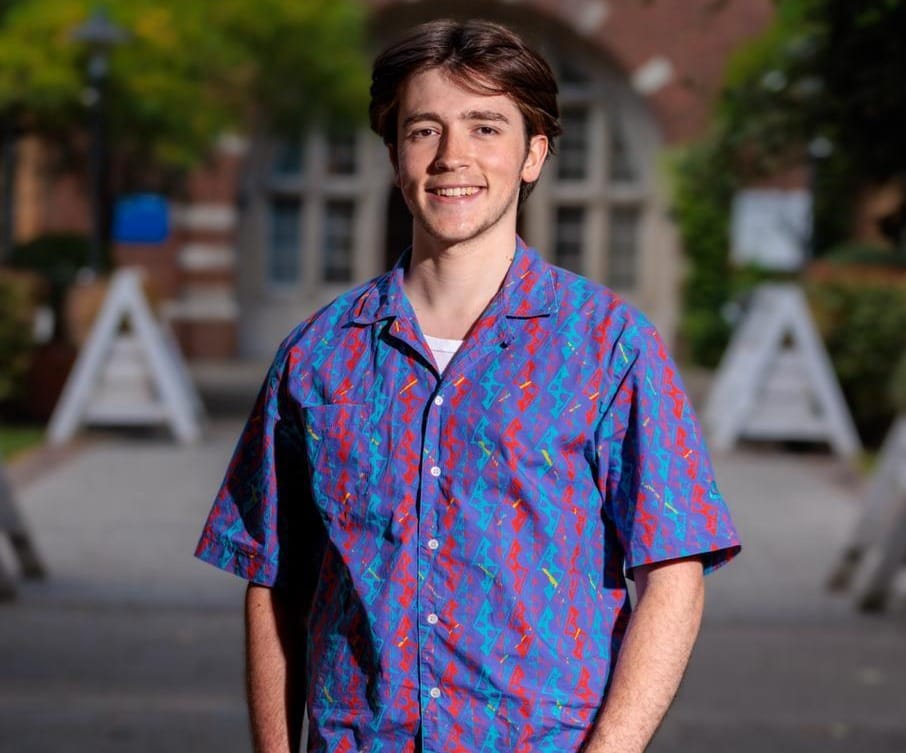
I started my undergraduate studies in the same cohort as Nico, however, we didn’t interact much during our studies, if at all. I understood the feeling he described.
Nico ran a very grassroots campaign: “I walked around campus, and I spoke with absolutely everyone I saw.” He wanted to lead a campaign focussed on what students wanted, and he would ask students “Is there anything that you’d like to see? And what do you think of my ideas?”
Nico spent time on the different campuses, trying to gain a broad understanding of the different needs of students by “just speaking with absolutely everyone.”
This year Nico intends to get a lot done. He has seven manifesto promises, and work is underway on all the projects he intends to do.
His aims include:
• Continue working on fostering a welcoming environment, facilitate more recreational spaces, and enhance communication between students and the union.
• Implement the mental health strategy, continuing the work done by my predecessor and the Mental Health Officer.
• Develop a platform to redistribute surplus food across campus, addressing both the cost-of-living crisis and food waste.
• Expand mentorship programs connecting underrepresented students with alumni.
• Host more inclusive activities with societies, making it easier for students to meet people and participate in union-hosted events.
• Be an accessible and supportive representative, keeping my ears open to student feedback and new initiatives.
• Improving cycling accessibility.
This is a lot. I ask him how he can manage doing everything, or as much as he can in the year he has. “So I first prioritized ones that depended on other people. So the food one the events one, the mental health strategy one.
"Basically, I prioritise those because I know that right now if it was around to me, I would have published the app already. I do the task that will require someone else to complete and then I work on my other projects.”
He also stays “late” at times. It ties into his goal of “being an accessible and supportive representative”: “The way I see it is this job is a job of service. A lot of people will see a pyramid, I see upside down and I see as everyone keeps everything going and then if issues happen, they funnel down and then they end up on me. I got voted in, I should be held accountable, and I love the fact that many students are coming up to me and asking me about my personal projects.”
On his projects, progress is being made. On the topic of more recreational spaces Nico said “The university does seem quite keen on creating more spaces. We’re doing quite a lot on biodiversity spaces, so we’re looking at spaces that aren’t being used. The students don’t really know about and kind of trying to make that more public and letting students have a say on what goes on.”
His goal ties in with IC Union President Camille’s goal of more green spaces across Imperial’s campuses. On mental health, Nico is also working on implementing the mental health strategy. Part of this is the introduction of wellbeing advisors “in every department.” He describes how his "role in the Union is to hold the university accountable and make sure that they are doing this.”
One of Nico’s most interesting goals is his work on reducing food waste on campus. “I kind of got inspired by Too Good To Go.” Too Good To Go is an app that allows customers to buy food from shops that would otherwise be thrown out or wasted. He continues “I was at an event once and there were 20 pizzas that were left. I’ve worked at a restaurant, and I’ve seen food go to waste and I just hate seeing food go to waste. So, I’m walking around campus, and I thought, you know what, I’m just going to give these pizzas away. Students are super happy, and I thought wait, why aren’t we doing this on a like a proper platform?
“Some of the private food outlets have said they’re happy to do it, so it’s slowly progressing. Obviously, nothing set in stone and there’s no minimum viable product yet. But I think it is still possible.”

